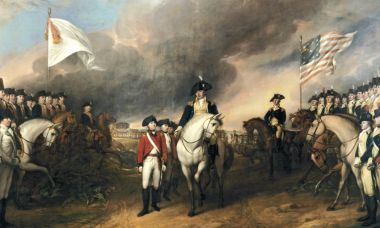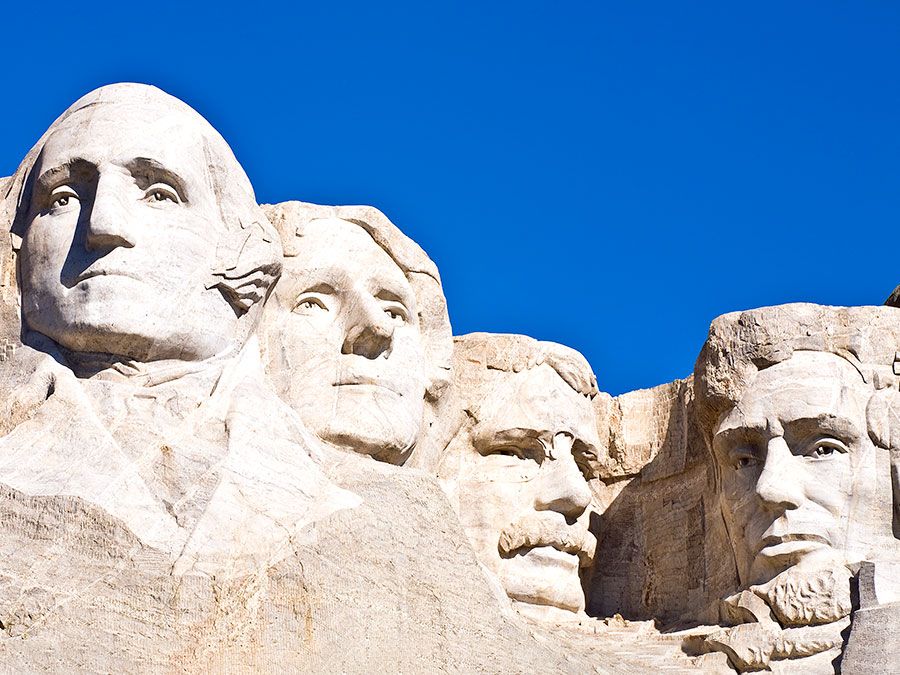1. The Evolution of the NBA: A Brief Overview

Since its inception in 1946, the National Basketball Association (NBA) has undergone significant changes to become the global sports juggernaut it is today. The NBA started as a 17-team league known as the Basketball Association of America (BAA), and over the years, it has expanded to 30 teams across North America. The league has also undergone several format changes, including rule changes, expansion of the playoffs, and conference realignments. In this article, we will delve deep into the NBA's rich history and how it has evolved over the years.
2. The NBA: A Definition
The NBA refers to a professional basketball league with 30 teams from the United States and Canada. The league is divided into two conferences (Eastern and Western), each having 15 teams. While the NBA's regular season starts in late October and ends in mid-April, the playoffs take place from mid-April to mid-June. The league's champions are awarded the coveted Larry O'Brien Trophy, named in honor of the league's former commissioner.

History of the NBA
The NBA was established in 1946, and three years later, it merged with the National Basketball League (NBL) to form what we know today as the NBA. In the early years, the NBA was a mere shadow of today's league. The teams traveled by train and bus to play matches, and the referees were not required to hold a uniform or whistle. Over the years, however, the league has grown in stature, bringing in some of the world's most exceptional athletes and becoming a cultural phenomenon and one of the most-watched sports leagues globally.
The Significance of the NBA
The NBA has transcended its sport, becoming a significant cultural force worldwide. The league draws millions of viewers from across the globe, not only for the game's sake but also for the entertainment factors such as the half-time shows and player introductions. The NBA's reach extends beyond sports, with players using their platform to draw attention to societal injustices and speaking out on issues that transcend basketball. The NBA has become synonymous with inclusivity, with players from all over the world playing for teams and breaking down barriers on and off the court.
In conclusion, the NBA's rich history, significance and impact on society is undeniable. Whether future changes will affect the league differently than in the past, remains to be seen. However, one thing is for sure: the NBA has a bright future, with millions of fans across the globe clamoring for their favorite teams and players to dominate the court night in, night out.
4. The Evolution of NBA Game Rules
The NBA as we know it today has come a long way in terms of game rules. There have been various changes implemented over the years that have made the game more exciting and competitive. One of the most significant changes was made in the late 70s when the 3-point line was introduced. This was a game-changer, making the game more dynamic and testing the players' shooting accuracy. A few years later, the shot clock was reduced to 24 seconds, forcing teams to play at a faster pace and make quicker decisions.
Another notable change was made to the hand-checking rule in 2004. This rule change prohibited defenders from placing and keeping a hand or forearm on an opponent, making it easier for players to drive to the basket. This, in turn, paved the way for players like LeBron James and Russell Westbrook, who relied on their speed and agility to get past defenders.
4.1 The Impact of Rule Changes in NBA History
The changes in NBA game rules have had a significant impact on the style of play and players' strategies. For instance, the addition of the 3-point line led to a surge in the number of shots taken from beyond the arc. This made sharpshooters like Steph Curry and Klay Thompson invaluable assets to their respective teams. Similarly, the shot-clock reduction made the game faster and more exciting, opening up more scoring opportunities and requiring players to be more decisive.
5. The NBA's Global Reach
The NBA has always been a popular league among American sports enthusiasts, but over the years, it has garnered considerable global attention, with basketball now being played all over the world. This has been largely due to the NBA's efforts to expand its reach and engage with fans worldwide.
One of the primary ways the NBA has achieved this is by staging international games. These exhibition games have allowed fans from different parts of the world to experience the NBA's brand of basketball first-hand. Additionally, the NBA has signed lucrative broadcasting deals with various networks across the globe, making it easier for fans to follow their favorite teams and players.
5.1 The Benefits and Challenges of NBA's Globalization
The NBA's global reach has brought with it a host of benefits, including increased revenue, brand recognition, and talent acquisition. However, it has also posed some challenges, such as a language barrier, cultural differences, and logistical constraints. Nevertheless, the NBA has continued to invest in its global outreach, recognizing that doing so is essential for sustaining its growth and attracting new fans worldwide.
6. The NBA and Social Justice
In recent years, the NBA has become increasingly vocal about social justice issues. The league has made concerted efforts to fight against racial injustices, voter suppression, and police brutality, among other issues. By using the league's platform, players, coaches, and officials have been able to bring attention to important issues, spark conversations, and drive change.
6.1 The Role of NBA Players in Social Justice Movements
One of the most notable aspects of the NBA's social justice advocacy is the players' involvement. NBA players have been at the forefront of social justice movements, using their platform to raise awareness and call for change. Some players have chosen to kneel during the national anthem, while others have worn messages of activism on their jerseys. The league has also provided players with resources and support to help them be effective in their activism.
7. The bright side of NBA's unsung heroes
As much as the NBA world admires the superstars who make the flashy moves and score the most points, it is often the unsung heroes who make a significant difference in games. These are the role players who don't always get the attention they deserve, but they nonetheless contribute significantly to their team's success.
Take, for example, Dennis Rodman, who was not known for scoring at the height of his career. Still, he was a valuable addition to the Chicago Bulls, thanks to his rebounding expertise and defensive prowess. The same goes for Bruce Bowen, who was primarily a defensive player for the San Antonio Spurs. He may not have been their number one scorer, but he played an essential role in shutting down his opponents.
There are plenty of examples of these unsung heroes throughout NBA history, and we should not forget the impact they have made on their teams. While it's essential to acknowledge and appreciate the superstars, let's not overlook these role players' contributions.
Counterpoint: The need for superstar players
While it's true that role players have made significant contributions to their teams, we cannot overlook the importance of having superstar players on a team. Yes, they may be the ones who score the most points and generate the most attention, but they are also the ones who can take over games and lead their teams to victory.
Consider Michael Jordan, who was the face of the Chicago Bulls in the 1990s. His scoring abilities were invaluable, and he was the most important player on the team. On the LA Lakers, Kobe Bryant played a similar role - he was their go-to guy whenever they needed a big play.
Sure, role players are essential, but when the game is on the line, it's better to have a superstar who can make something out of nothing. The NBA has evolved to become more of a superstar-led league, and as such, it's challenging for teams to win without a superstar leading the way.
8. Expanding the NBA to other parts of the world
While the NBA is undoubtedly an American institution, there have been talks of expanding the league to other parts of the world. With basketball growing in popularity globally, it's incredibly logical to think about taking the league internationally.
One idea that has been floated around is to establish an NBA division in Europe. This would involve the establishment of teams in major European cities and the scheduling of games that would take place on both continents. It's not a new idea, as the NBA already hosts games in London, England, and Mexico City.
However, there are some potential downsides to this idea. Will the fans in Europe embrace the American game? Will the travel be too much for the teams? Can the players adjust to the time differences and continue to perform at their best?
These are all important questions that need to be answered before any expansion can take place. However, if the NBA can navigate these issues, it could be an exciting development for both the league and basketball as a whole.
Alternative: Promoting NBA in other parts of the world
Instead of expanding the league internationally, an alternative approach would be to promote the NBA in other parts of the world better. This could involve hosting more games overseas, partnering with local organizations to build basketball courts, and increasing media coverage in other countries.
With basketball's growing popularity worldwide, it's essential to show that the NBA is more than just an American sport. By promoting the league in other countries, the NBA can tap into a vast fan base and potentially groom the next generation of NBA stars.
At the same time, promoting the NBA can help promote the sport of basketball, which can only be a good thing for everyone involved.
9. Conclusion: A legacy that will endure
The NBA has come a long way since its inception in the 1940s. It has transformed into a global brand, with millions of fans worldwide rooting for their favorite teams and players. The league has seen many legends come and go - from Michael Jordan to LeBron James, Wilt Chamberlain to Kareem Abdul-Jabbar - but their legacy endures.

The future of the NBA is bright, with new stars emerging every year. Still, the league will always have a rich history that should never be forgotten. From the early days of the Minneapolis Lakers to the dominance of the Boston Celtics, from the "Bad Boy" Pistons to the Michael Jordan-led Chicago Bulls, the NBA has left an indelible mark on the world of sports.
So, let's continue to celebrate the NBA's past, present, and future. Whether you're a fan of a particular team or just love the game of basketball, the NBA's legacy is something that we can all appreciate and enjoy.
Frequently Asked Questions
What kind of information is there in NBA history?
Answer: NBA history is all about the evolution of professional basketball in North America. From the first basketball games in the early 1900s to the modern era and its many memorable moments and personalities, NBA history covers the fascinating development of the game itself, the league, and its franchises.
Who are some of the most famous players in NBA history?
Answer: The NBA has produced many incredible players throughout its history, but some of the most famous and influential include Michael Jordan, Kareem Abdul-Jabbar, Wilt Chamberlain, LeBron James, Magic Johnson, Kobe Bryant, Larry Bird, Shaquille O’Neal, and Bill Russell.
What teams have been most successful in NBA history?
Answer: Some of the most successful NBA teams in history include the Boston Celtics with 17 championships, the Los Angeles Lakers with 16 championships, and the Chicago Bulls with 6 championships. Other teams with notable success include the San Antonio Spurs, Golden State Warriors, and Miami Heat.
What is the most memorable moment in NBA history?
Answer: It’s difficult to pinpoint just one memorable moment in NBA history, as there have been many incredible moments that have been etched in fans’ memories forever. However, some highlights include Michael Jordan’s “flu game” in the 1997 Finals, Kobe Bryant’s 81-point game, Ray Allen’s Game 6 three-pointer in the 2013 Finals, and the iconic “Malice at the Palace” brawl in 2004.
How has NBA history impacted the game of basketball worldwide?
Answer: The NBA has played a significant role in the globalization of basketball. From the early days of pioneering players like Yao Ming and Manu Ginobili, to the modern era of stars like Giannis Antetokounmpo and Luka Doncic, the NBA has been a leading force in the game’s expansion beyond North America. The league’s popularity has only continued to grow, with international partnerships, players and fans alike helping to make the NBA one of the most popular and influential sports organizations in the world.





